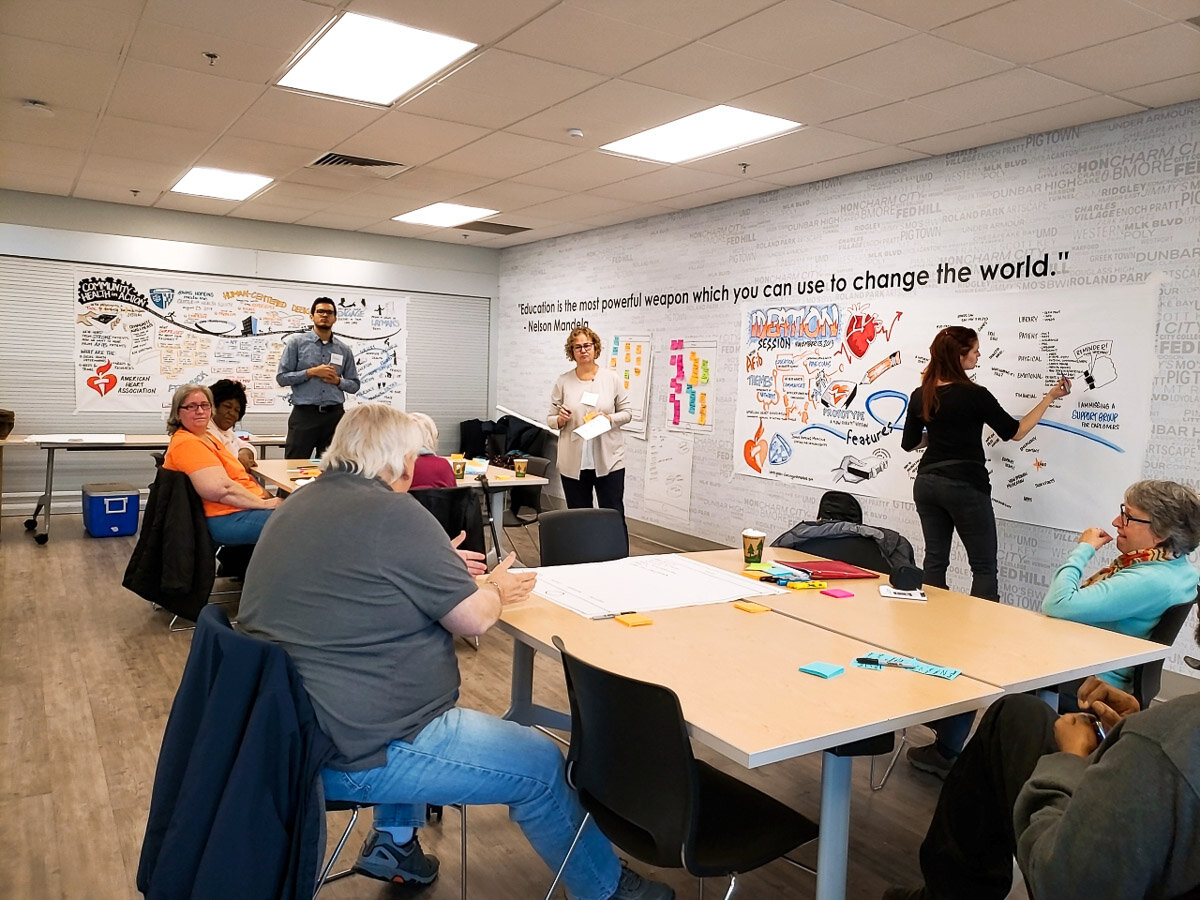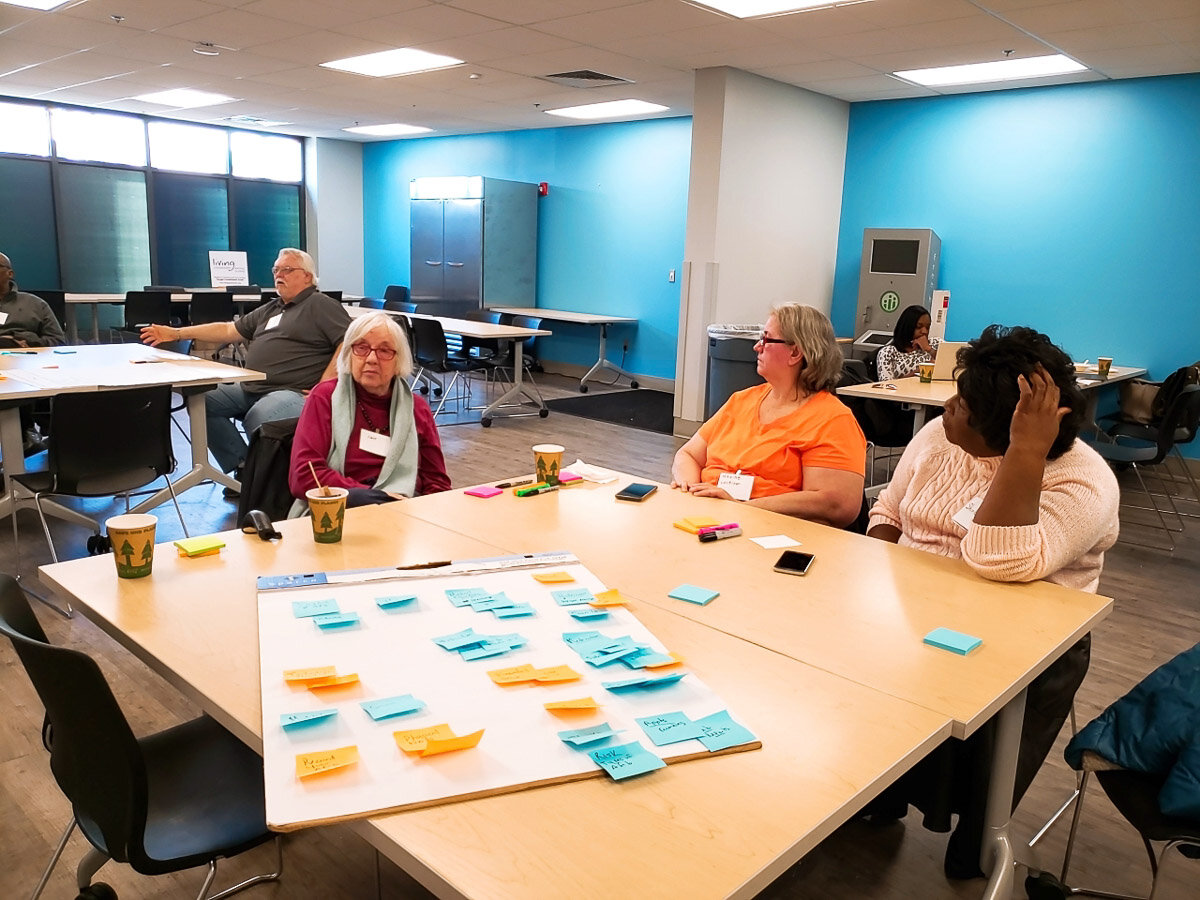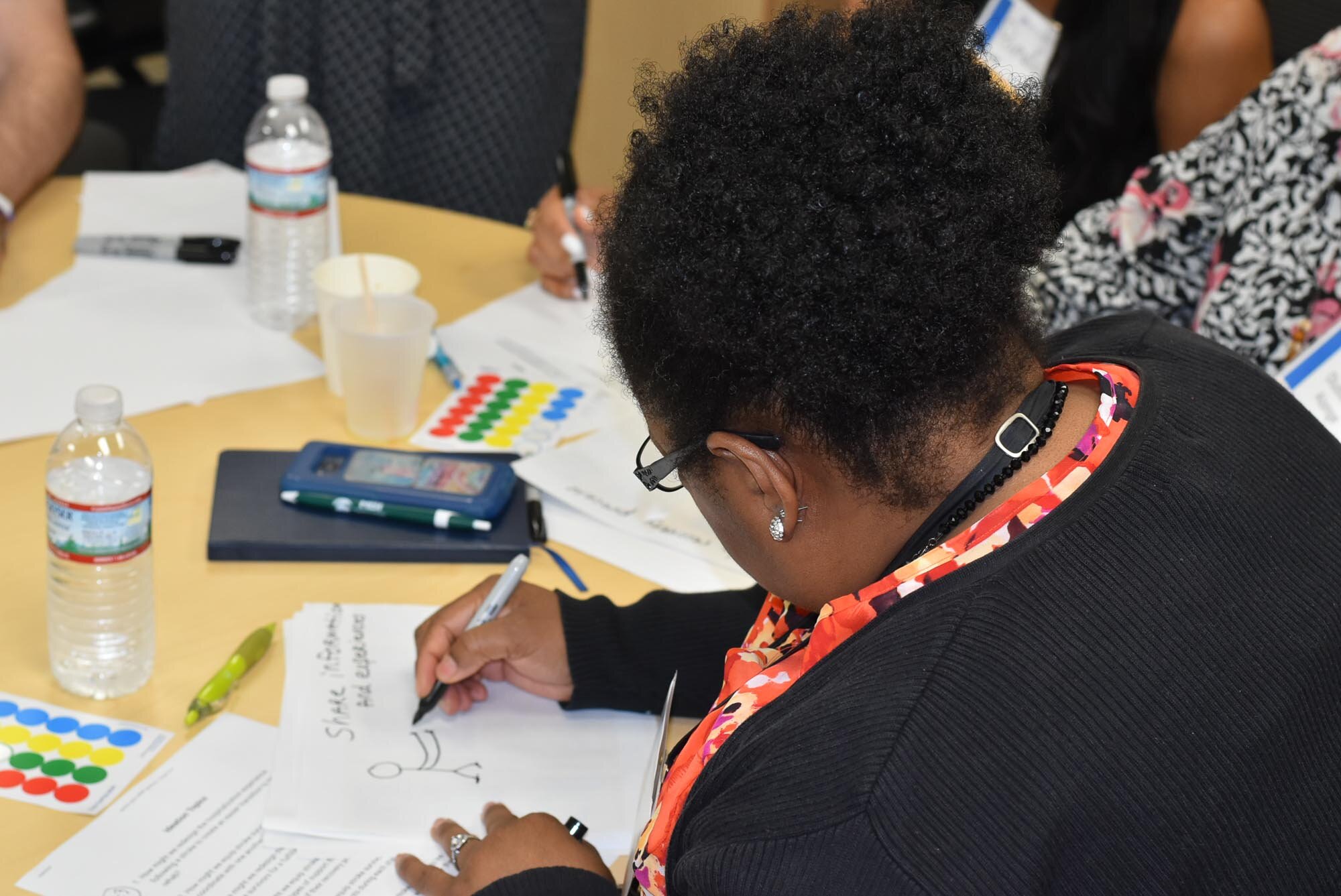Stroke Survivors Create Their Own Resources to Help on the Path to Recovery
Following a stroke, patients may have to deal with a multitude of issues, including motor control/balance impairments, changes in cognition, difficulties communicating, changes to vision and hearing, and mood imbalances. Quality of life can suffer, and the path back to health can feel lonely and discouraging, especially for patients from communities underserved by health care resources.
To help stroke survivors cope with their recovery journeys, during this past year staff from the Center for Health Equity (CHE) partnered with personnel from the American Heart Association’s (AHA) “Community Health Action Taskforce” (CHAT) to create a toolkit of resources offering support and guidance to patients, family members and caregivers. Using “human-centered design” techniques that put the end user of a product in charge of its design, the CHE team led the group through a multi-stage process focused on the patient experience to identify what tools would be most beneficial to stroke survivors.
Between April and September of 2019, Nancy Mollelo, M Strickland and Abhay Singh facilitated six collaborative workshop sessions with stroke survivors and AHA staff. The workshops moved through a progression of topics that helped participants empathize with the patient experience, define specific challenges during stroke recovery, explore possible solutions, and develop and test prototype resources. These sessions culminated in the development of prototype resources to help address those challenges.
During the sessions, patients described how their lives had changed since their stroke. They created “journey maps”--graphic representations of their experiences as stroke survivors--to help the team define and understand the problems facing stroke victims. The American Heart Association also coordinated a screening of A Teachable Moment, an award winning film about four stroke patients and their recoveries.
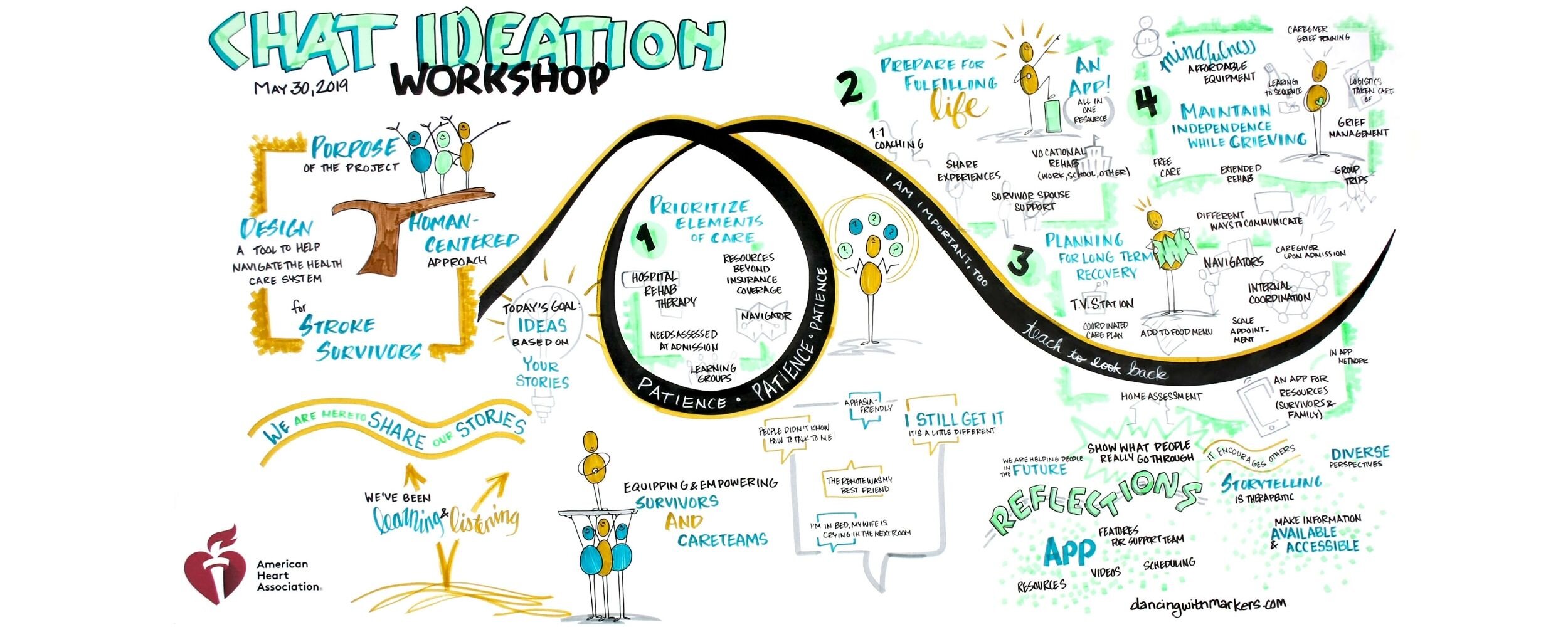
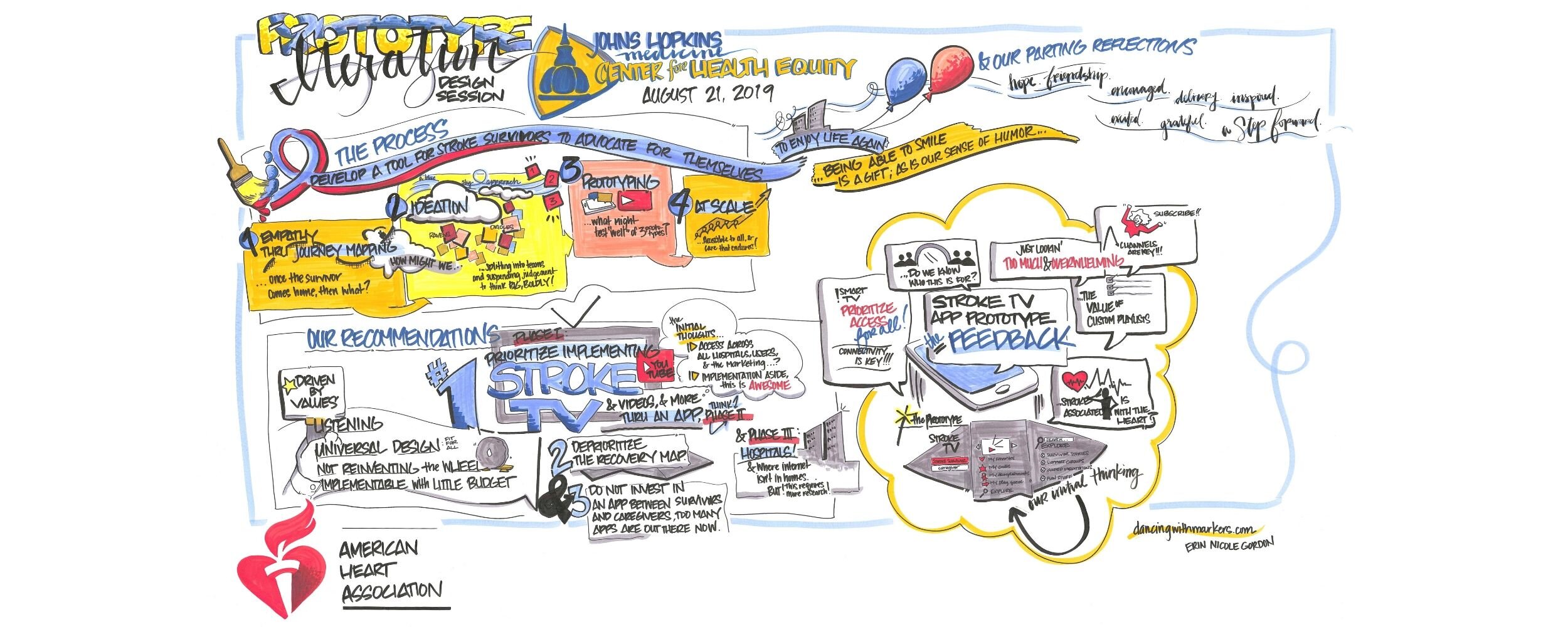
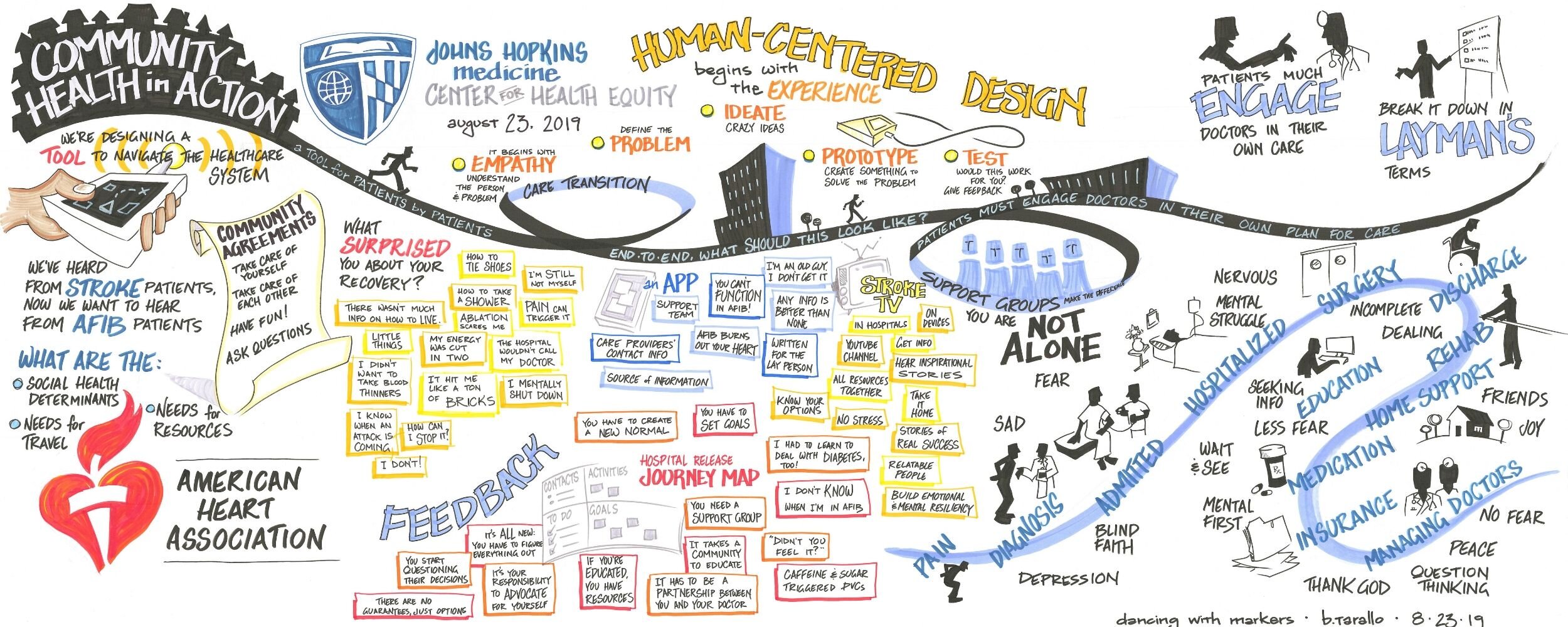
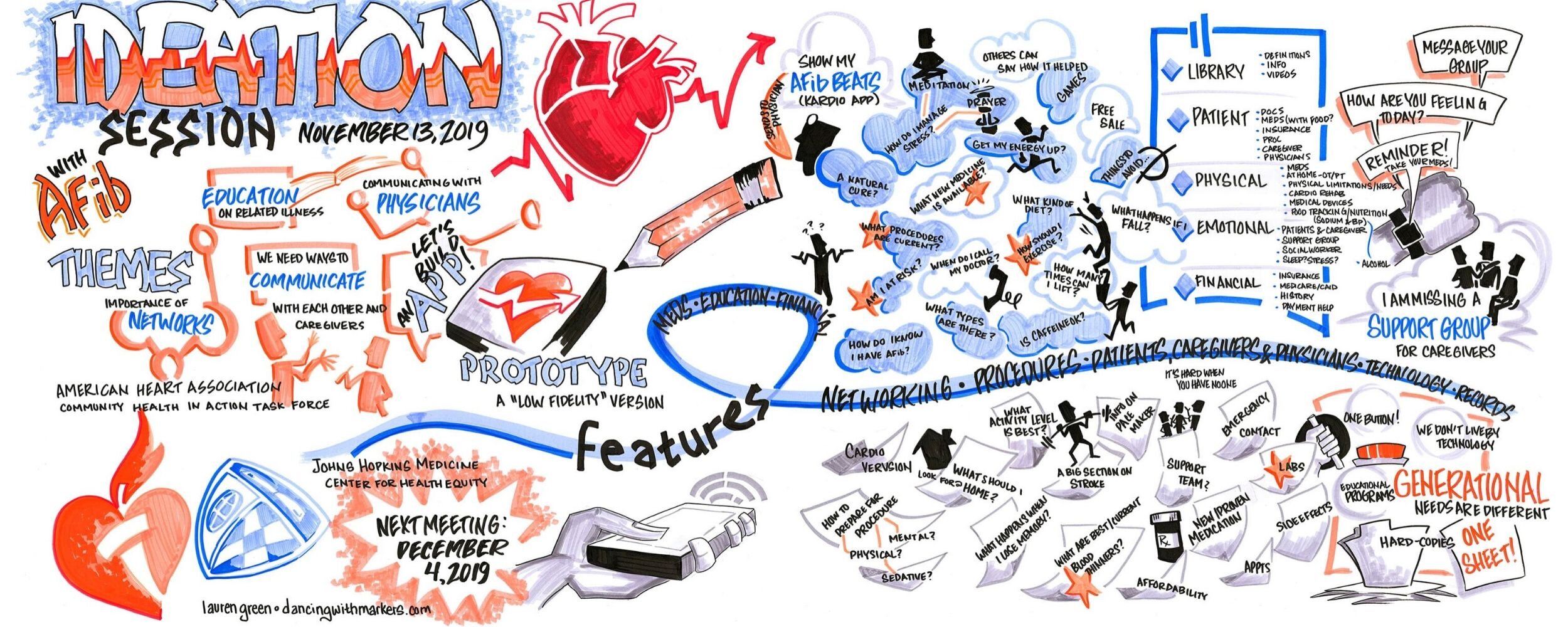
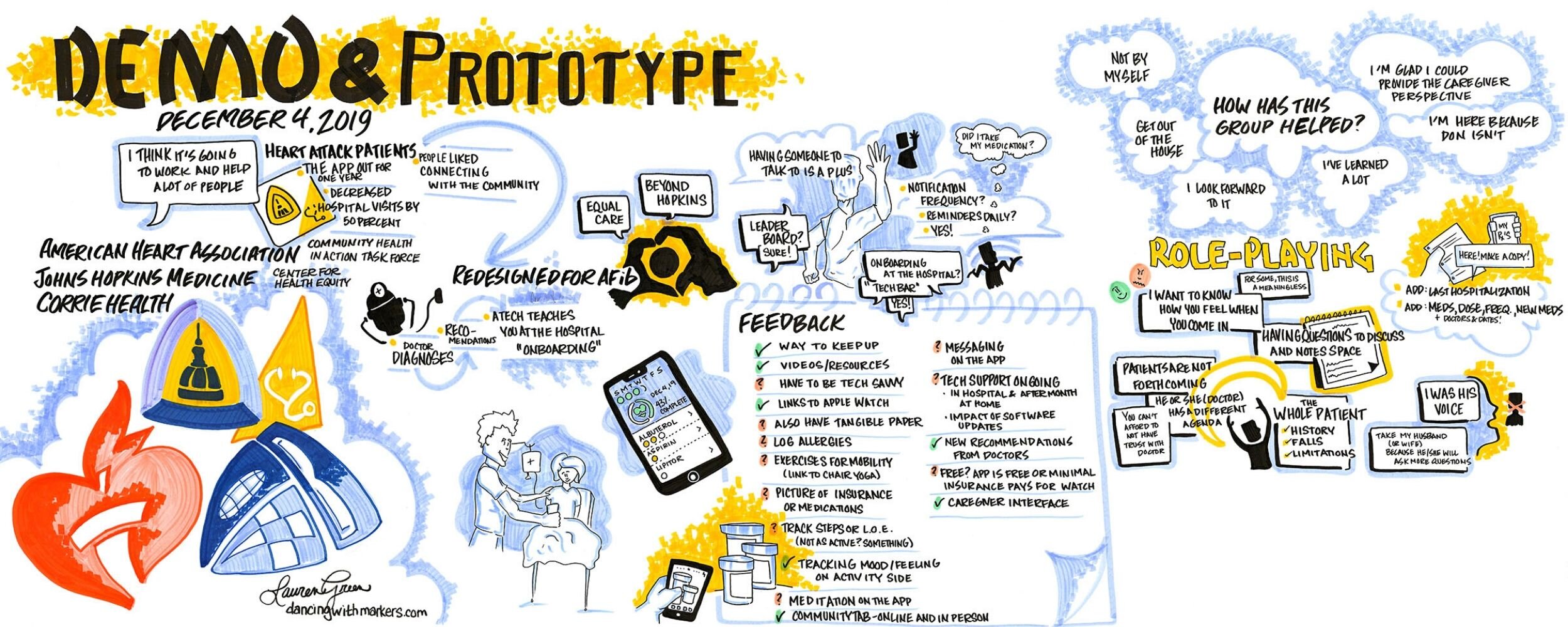
Based on these sessions, the CHE team developed a list of possible problems to explore and discuss in more detail. Stroke survivors added to the list, and voted on which ideas they thought were the most important to persons recovering from strokes. Building on the input received, the team developed three prototype resources to help stroke survivors, which included:
A customizable journey map that helped survivors track their goals and progress and which contained contact information for the stroke survivor’s caretakers and healthcare team.
An app that provided stroke survivors and caregivers with a platform where they could connect with each other and learn more information about stroke.
“Stroke TV,” a TV channel or YouTube channel providing videos on topics ranging from survivor stories, tips and tricks, medical information, and recordings of stroke support groups.
The prototypes were presented to the stroke survivors for their feedback and to determine which prototype should be prioritized and developed by the American Heart Association. The prototypes were also presented at the Snyder Center for Aphasia Life Enhancement, a center that supports people with aphasia.
The Center for Health Equity staff responded to feedback and recommended that the American Heart Association prioritize developing a “Stroke TV” channel on YouTube. Survivors will be able to use this resource throughout their recovery journey, anywhere from in the hospital to on their couch with just a phone, Smart TV, or a computer, and an internet connection.
The American Heart Association is continuing to process the design team’s recommendations, and has begun the launch of a stroke-focused YouTube channel. An app is also being developed to help patients access the recommendations and resources developed in the collaborative sessions.
The AHA was very interested in the human-centered design process, and they have invited the CHE Center staff to conduct another round of sessions focusing on the needs of patients with atrial fibrillation. The Johns Hopkins team is pleased to continue the partnership with the American Heart Association exploring patient-centered strategies for improving wellness.
RELEVANT LEARNING RESOURCES

